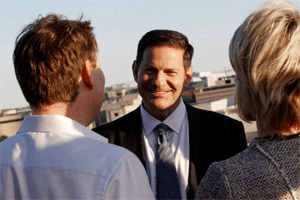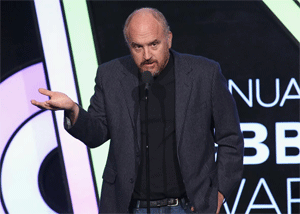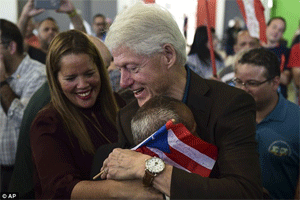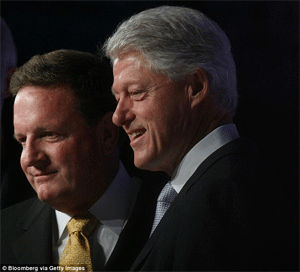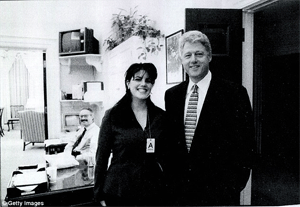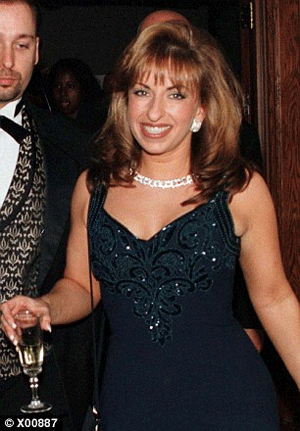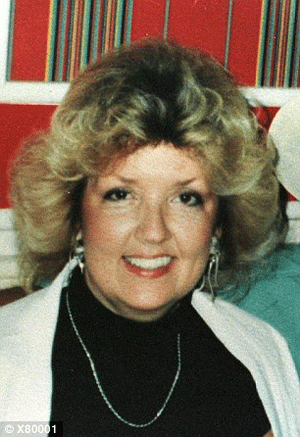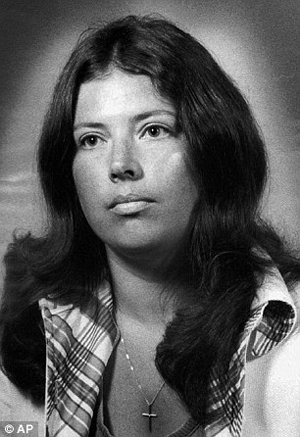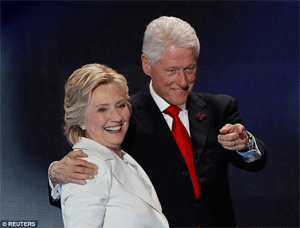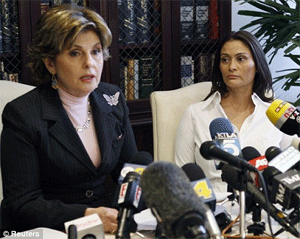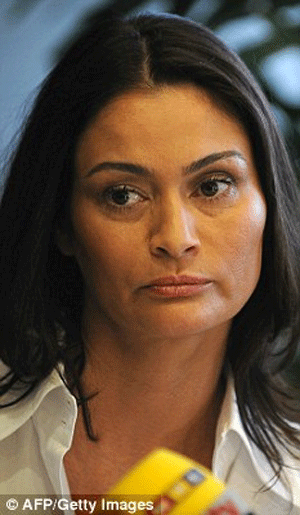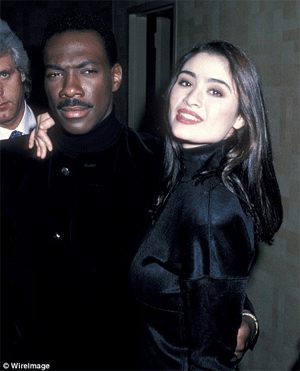Updated by Matthew Yglesias @mattyglesiasmatt@vox.com
Vox
Nov 15, 2017, 9:15am EST
NOTICE: THIS WORK MAY BE PROTECTED BY COPYRIGHT
YOU ARE REQUIRED TO READ THE COPYRIGHT NOTICE AT THIS LINK BEFORE YOU READ THE FOLLOWING WORK, THAT IS AVAILABLE SOLELY FOR PRIVATE STUDY, SCHOLARSHIP OR RESEARCH PURSUANT TO 17 U.S.C. SECTION 107 AND 108. IN THE EVENT THAT THE LIBRARY DETERMINES THAT UNLAWFUL COPYING OF THIS WORK HAS OCCURRED, THE LIBRARY HAS THE RIGHT TO BLOCK THE I.P. ADDRESS AT WHICH THE UNLAWFUL COPYING APPEARED TO HAVE OCCURRED. THANK YOU FOR RESPECTING THE RIGHTS OF COPYRIGHT OWNERS.
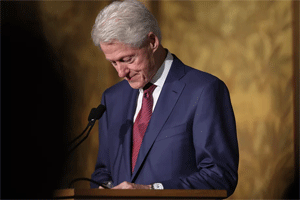
Win McNamee/Getty Images
Many years ago, when I was a high school student making my first visit to Washington for a two-week summer camp for weird politics dorks, the dominant news story was then-President Bill Clinton’s August 17, 1998, admission that despite earlier denials, he “did have a relationship with Miss Lewinsky that was not appropriate.”
“In fact,” Clinton conceded, “it was wrong,” and it “constituted a critical lapse in judgment and a personal failure on my part for which I am solely and completely responsible.”
In the days before the admission, there was considerable conviction in the chattering classes that the allegations, if true, would end up leading to Clinton’s resignation. That proved to be incorrect. Clinton was not shamed into resigning, and senior leaders of the Democratic Party did not pressure him into resigning.
At the time I, like most Americans, was glad to see Clinton prevail and regarded the whole sordid matter as primarily the fault of congressional Republicans’ excessive scandal-mongering. Now, looking back after the election of Donald Trump, the revelations of massive sexual harassment scandals at Fox News, the stories about Harvey Weinstein and others in the entertainment industry, and the stories about Roy Moore’s pursuit of sexual relationships with teenagers, I think we got it wrong. We argued about perjury and adultery and the meaning of the word “is.” Republicans prosecuted a bad case against a president they’d been investigating for years.
What we should have talked about was men abusing their social and economic power over younger and less powerful women.
The United States, and perhaps the broader English-speaking world, is currently undergoing a much-needed accountability moment in which each wave of stories emboldens more people to come forward and more institutions to rethink their practices. Looking back, the 1998 revelation that the president of the United States carried on an affair with an intern could have been that moment.
It was far from the most egregious case of workplace sexual misconduct in American history. But it was unusually high-profile, the facts were not in dispute, the perpetrator had a lot of nominal feminist ideological commitments, and political leaders who shared those commitments had the power to force him from office. Had he resigned in shame, we all might have made a collective cultural and political decision that a person caught leveraging power over women in inappropriate ways ought to be fired. Instead, we lost nearly two decades.
We didn’t even have the right argument
In the midst of the very same public statement in which he confessed the error, Clinton also mounted the defense that would see him through to victory — portraying the issue as fundamentally a private family matter rather than a topic of urgent public concern.
"I intend to reclaim my family life for my family," he said. "It's nobody's business but ours. Even presidents have private lives. It is time to stop the pursuit of personal destruction and the prying into private lives and get on with our national life.”
To this line of argument, Republicans offered what was fundamentally the wrong countercharge. They argued that in the effort to spare himself from the personal and marital embarrassment entailed by having the affair exposed, Clinton committed perjury when testifying about the matter in a deposition related to Paula Jones’s lawsuit against him.
What they should have argued was something simpler: A president who uses the power of the Oval Office to seduce a 20-something subordinate is morally bankrupt and contributing, in a meaningful way, to a serious social problem that disadvantages millions of women throughout their lives.
But by and large, they didn’t. So Clinton countered with the now-famous defense: “It depends on what the meaning of the word ‘is’ is.” Ultimately, most Americans embraced the larger argument that perjury in a civil lawsuit unrelated to the president’s official duties did not constitute high crimes and misdemeanors.
But looking back through today’s lens, this whole argument was miscast. The wrongdoing at issue was never just a private matter for the Clinton family; it was a high-profile exemplar of a widespread social problem: men’s abuse of workplace power for sexual gain. It was and is a striking example of a genre of misconduct that society has a strong interest in stamping out. That alone should have been enough to have pressured Clinton out of office.
The affair itself was seriously wrong
In Clinton’s defense, of course, the wrongdoing at hand was different in degree from some of the more recent cases in the news.
-- Their Lives: The Women Targeted By the Clinton Machine, by Candice E. Jackson
-- Target: Caught in the Crosshairs of Bill and Hillary Clinton, by Kathleen Willey
-- Passion and Betrayal, by Gennifer Flowers with Jacquelyn Dapper
-- Partners in Power: The Clintons and Their America, by Roger Morris
-- The Secret Life of Bill Clinton: The Unreported Stories, by Ambrose Evans-Pritchard
-- Compromised: Clinton, Bush and the CIA: How the Presidency was Co-opted by the CIA, by Terry Reed & John Cummings
-- Arkansas Connections, by Sam Smith
In her 2014 Vanity Fair article looking back on the scandal, Lewinsky wrote, “I will always remain firm on this point: it was a consensual relationship. Any ‘abuse’ came in the aftermath, when I was made a scapegoat in order to protect his powerful position.”
As Clinton himself said, it was “not appropriate,” “wrong,” and a “critical lapse in judgment” — phrases that could easily have appeared in the introduction to a resignation message. Alternatively, one could easily imagine Democrats’ then-leaders in Congress Dick Gephardt and Tom Daschle — joined perhaps by prominent Cabinet members such as Madeleine Albright and Janet Reno — repeating them back to Clinton in an Oval Office meeting the next day urging him to resign.
Instead, Democrats embraced the narrative that the wrongdoing, though real, was ultimately not serious — or at a minimum, not a matter of public concern.
This was a mistake. Clinton admitted he was wrong but stayed tellingly cagey as to what exactly was wrong about it, before implicitly sliding to the stance that the problem was marital infidelity. Marriages, of course, really are private and, as they say, complicated. By the broader issue of men in general abusing positions of power to obtain sexual gratification is most certainly not a trivial issue or a private matter. If word had gotten back to the White House of an unmarried Cabinet secretary having a clandestine affair with one of his interns, the administration might have taken action or (perhaps more likely) might have tried to cover it up. But they certainly wouldn’t have played dumb and pretended not to see that there was a problem.
“My boss took advantage of me,” Lewinsky writes in the same article, a piece in which she correctly argues that the ensuring debate ended up entirely slighting highly relevant issues including “the balance of power and gender inequality in politics and media.”
Had Clinton resigned in disgrace under pressure from his own party, that would have sent a strong, and useful, chilling signal to powerful men throughout the country.
Instead, the ultimate disposition of the case — impunity for the man who did something wrong, embarrassment and disgrace for the woman who didn’t — only served to confirm women’s worst fears about coming forward.
Democrats had a good alternative to Clinton
Politics ain’t beanbag, and oftentimes political actors have very good reason to stand by problematic actors. If New Jersey Sen. Bob Menendez is convicted of the corruption charges for which he’s currently on trial (the jury is deliberating as I write), Republicans will argue that he ought to resign his seat. Democrats will strategically resist this, knowing that if Menendez steps down today, the vacancy will be filled by Gov. Chris Christie, a Republican, while if he hangs on until mid-January, the state’s Democratic governor-elect, Phil Murphy, will fill it.
But in the case of the Clinton-Lewinsky scandal, there were no real policy stakes. Had Clinton left office, Al Gore would have become president and pursued essentially the same policy.
It’s not a coincidence that when The West Wing did its fictionalized version of the Clinton impeachment drama, it went out of its way to establish Vice President Hoynes as dislikable and ideologically unreliable (“the guy practically has corporate sponsorship,” Josh Lyman quips at one point before dismissing him as the “Tostitos vice president”), in order to make Bartlett’s effort to cling to office seem sensible and honorable.
Reality provided no such convenient plot contrivance. Gore was a centrist DLC Democrat just like Clinton, one who could easily have stepped into his shoes.
Had Gore become president, perhaps he would have run and won as an incumbent. Or perhaps, as in the real world, he would have lost. Either way, to admit that the Republicans had uncovered something genuinely scandalous would not have entailed making any crucial ideological or policy concessions. It would, instead, have required Democrats to look past knee-jerk partisanship. And, more importantly, it would have required them to acknowledge that what Clinton did was seriously wrong.
The time is right for a reevaluation
Over the past 18 months, the combination of an excellent profile by Katie J.M. Baker and a cynical stunt by the Trump campaign has prompted a reconsideration of Juanita Broaddrick’s allegation that Bill Clinton raped her in 1978.
This is an important conversation to have, due to both the serious nature of the charges and their interplay with the commonplace progressive idea that we should “believe women” when they come forward with allegations of sexual assault.
Hillary Clinton
@HillaryClinton
Every survivor of sexual assault deserves to be heard, believed, and supported. http://hrc.io/SexualAssault
6:09 PM - Nov 22, 2015
Campus sexual assault - The Office of Hillary Rodham Clinton
hillaryclinton.com
The Lewinsky case, however, is important precisely because the facts are not in dispute. Cases that involve unprovable, years-old allegations of assault pose an inherently difficult problem for almost any institution. But what’s striking about the charges leveled in recent months against Harvey Weinstein, Louis C.K., Leon Wieseltier, and so many others is the extent to which misconduct was an “open secret” in the relevant communities.
They kept getting away with it not because nobody knew, but because the people who knew treated it just how the American public treated Clinton’s abusive behavior — as something that was maybe wrong but fundamentally unimportant compared to an important man’s work.
In Clinton’s case, of course, part of the endgame is that a few months after his acquittal on impeachment charges, his wife launched her first Senate campaign. Once Hillary Clinton threw her hat into the ring, she immediately became America’s presumptive first woman president, creating a kind of reputational vortex that shielded her husband’s behavior from scrutiny. Attacking Bill was, by extension, an attack on Hillary — an attack that most people in leading positions in American progressive politics had no desire to make.
“She is the war on women, as far as I’m concerned, because with every woman that she’s found out about—and she made it a point to find out who every woman had been that’s crossed his path over the years—she’s orchestrated a terror campaign against every one of these women, including me,” said Willey.
One of those women was Juanita Broaddrick, who says Hillary Clinton threatened her in person two weeks after she claimed Bill Clinton raped her.
Hillary’s aggressive attitude was not limited to those who accused her husband of sexual misconduct: other men received the benefit of the doubt from Hillary when she needed their support politically. When former Sen. Bob Packwood was accused of sexual harassment, Clinton told her friend Blair that she was “tired of all those whiney [whiny] women,” and that she needed Packwood on health care.
Hillary has also suggested that Bill’s problems with women are the fault of a woman: his mother.
Clinton attempted to explain to Lucinda Franks that Bill’s infidelity is rooted in his abused childhood, stating during an interview that he was abused and that “when a mother does what she does, it affects you forever.”
-- Hillary Clinton’s Long History of Targeting Women, by Brent Scher
But now that Hillary is out of electoral politics and has emerged as a bigger draw and more potent political force than her husband, there’s no excuse for Democrats not to look back on these events with more objectivity. Fifty-something leaders of organizations shouldn’t be carrying on affairs with interns who work for them regardless of whether the affair is in some sense consensual.
We can’t change the past, but we should be clear about it
Building a firm line around that kind of activity would give any organization a stronger, healthier culture. Our expectations for the conduct of the president of the United States should be high, and we should treat men’s abuse of authority over younger female subordinates for sexual purposes as a serious, endemic social problem, not a private marital issue between the boss and his wife.
My guess is that in the years to come, most left-of-center people born in the 1980s will say that if they’d been old enough to have a view on the matter back in 1998, they would have favored pressuring Clinton to resign. I hope that is the case, at least. Most young Democrats backed Bernie Sanders over Clinton in 2016 and are accustomed as a result to the idea of an emotionally and intellectually hostile attitude toward “the Clintons.”
Unfortunately for me, I’m a little too old to get away with claiming to have had no opinion on this at the time. My version of a sophisticated high schooler’s take on the matter was that the American media should get over its bourgeois morality hang-ups and be more like the French, where François Mitterrand’s wife and his longtime mistress grieved together at his funeral.
As a married 30-something father, I’ve come around to a less “worldly” view of infidelity. As a co-founder of Vox, I’d never in a million years want us to be the kind of place where men in senior roles can get away with the kind of misconduct that we’ve seen is all too common in our industry and in so many others.
Most of all, as a citizen I’ve come to see that the scandal was never about infidelity or perjury — or at least, it shouldn’t have been. It was about power in the workplace and its use. The policy case that Democrats needed Clinton in office was weak, and the message that driving him from office would have sent would have been profound and welcome. That this view was not commonplace at the time shows that we did not, as a society, give the most important part of the story the weight it deserved.
As the current accountability moment grows, we ought to recognize and admit that we had a chance to do this almost 20 years ago — potentially sparing countless young women a wide range of unpleasant and discriminatory experiences, or at a minimum reducing their frequency and severity. And we blew it.

